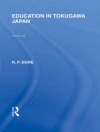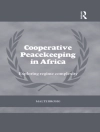Human-Animal Interactions (HAI) are a primary welfare interest to both animal scientists and practitioners. In zoos and aquariums, the study of Animal-Visitor Interactions (AVI), including both the impact of visitors on animals (the visitor effect) and the impact of animals on visitors (the visitor experience), have become a focus for understanding HAIs in zoos. The study of HAIs in zoos has grown to consider a number of factors, including animal-staff interactions and bonds, modern exhibit design and technology, direct and indirect interactions, as well as positive and negative impacts on both animals and visitor alike.
This thought-provoking book summarizes the latest research concerning the impacts of HAIs in zoos, including considerations for conducting research and managing HAIs. The book:
Explores the interactions of animals with keepers, veterinary professionals, and other staff, and the effects of those interactions on the welfare of animals.
Considers the impact of visitors on the well-being of animals.
Covers the effects of interactions on education and the visitor experience.
Outlines the use of technology to enhance experience, and improve animal welfare.
Details theoretical, ethical, and practical considerations relevant to HAIs in zoos.
An invaluable resource for animal behaviour and welfare scientists, students and practitioners, as well as anyone working with zoo animals.
Об авторе
Dr Sally Sherwen is the Director of Wildlife Conservation and Science at Zoos Victoria (the Conservation Organisation charged with the operation of Melbourne Zoo, Werribee Open Range Zoo and Healesville Sanctuary in Australia). Sally leads a dynamic team of scientists and specialists that develop and deliver strategic programs in conservation, animal welfare, education and environmental sustainability. Sally has a Ph D in Animal Welfare Science and in previous roles has established an evidence-based research program in animal behaviour and welfare science, developed and implemented an institutional welfare assessment tool to advance welfare standards and designed and ran collaborative training courses with several NGOs for industry professionals and community groups.












